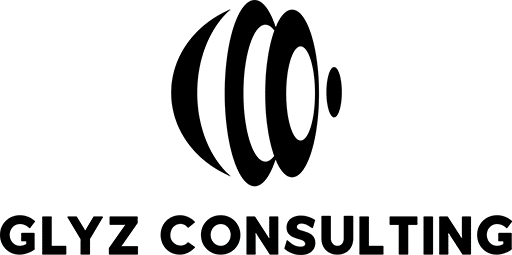
The Key to Sustainable Success in Today’s Business Environment
In today’s fast-paced, technology-driven business landscape, organizations are under immense pressure to improve efficiency, reduce waste, and adapt to rapidly evolving market demands. To stay competitive, companies must do more than simply implement new systems or processes—they need to focus on Operational Excellence. This holistic approach ensures that every part of an organization operates at peak efficiency, aligns with strategic objectives, and delivers maximum value to customers.
In this blog, we’ll explore the core concepts of Operational Excellence, why it’s critical for modern organizations, common gaps that hinder success, and the long-term benefits of focusing on operational efficiency.
What is Operational Excellence?
Operational Excellence (OpEx) is an organization-wide commitment to continuous improvement in processes, systems, and employee performance. It is more than just improving operational efficiency; it is about achieving long-term excellence by aligning all resources, from people to technology, with the company’s strategic goals. OpEx provides a framework for organizations to deliver products and services in the most efficient, cost-effective way possible while maintaining high standards of quality and reliability.
By fostering a culture of continuous improvement, organizations can:
- Enhance process efficiency
- Eliminate waste
- Maximize customer satisfaction
- Foster innovation and agility
Operational Excellence empowers organizations to build a sustainable model where every process, decision, and action contributes to achieving long-term strategic objectives.

Why is Operational Excellence Needed?
Rising Customer Expectations: Customers today demand not only high-quality products and services but also fast delivery and excellent customer service. Operational Excellence enables organizations to meet these rising expectations by optimizing workflows and ensuring timely delivery without compromising quality.
Increased Market Competition: With globalization and technological advancements, competition is fiercer than ever. To stay ahead, companies must ensure that their processes are efficient, their costs are controlled, and their operations are scalable. Without a focus on OpEx, organizations risk falling behind more agile competitors.
Cost Pressures: In an increasingly cost-sensitive environment, inefficiencies in processes, wasteful use of resources, and long cycle times can significantly erode profit margins. Operational Excellence helps streamline processes, reduce costs, and eliminate unnecessary steps, leading to leaner, more efficient operations.
Adapting to Rapid Market Changes: Markets and industries are changing faster than ever due to technological advancements, regulatory changes, and shifting customer preferences. Companies need to be agile enough to respond to these changes. OpEx provides the framework to be proactive, anticipate market shifts, and adapt processes accordingly.
Sustainability and Compliance: Environmental concerns and regulatory compliance are becoming essential in today’s business environment. Operational Excellence includes frameworks like Lean and Six Sigma that emphasize reducing waste, ensuring regulatory compliance, and implementing sustainable practices.
By focusing on these areas, organizations can not only maintain competitiveness but also ensure sustainable, long-term growth.
Gaps in Today's Market and Organizations
Despite the growing awareness of the importance of Operational Excellence, many organizations struggle to implement it effectively. Common gaps include:
Siloed Departments: Lack of communication and collaboration between departments leads to misaligned goals and inefficient processes. Departments working in isolation often focus on short-term objectives without aligning with the organization’s overall strategy.
Lack of Stakeholder Management: Ineffective stakeholder management often results in misunderstandings, unclear expectations, and resistance to change. Engaging key stakeholders early in the process is critical to securing buy-in and ensuring that everyone works toward a common goal.
Insufficient Planning and Execution: Many organizations fail to translate their strategic objectives into actionable plans. Without a clear roadmap and defined goals, projects often lose focus, leading to wasted time and resources.
Resistance to Change: Change management is a critical element of Operational Excellence. Organizations that do not foster a culture of adaptability may struggle to implement new processes and technologies, resulting in stagnant growth and missed opportunities.
Neglecting Continuous Improvement: Failing to embed a continuous improvement culture means that even successful companies can stagnate. Businesses must regularly evaluate and optimize their processes to stay ahead of the curve.
Negative Impact of Neglecting Operational Excellence
Organizations that do not prioritize Operational Excellence are likely to face several challenges:
Operational Inefficiencies: Without streamlined processes, companies face delays, increased costs, and wasted resources. Operational inefficiencies often lead to bottlenecks, rework, and ultimately, higher operational costs.
Declining Customer Satisfaction: Poorly managed operations result in longer lead times, lower quality products, and inconsistent service delivery. In an age where customer experience is paramount, failure to meet expectations leads to customer churn and lost market share.
Increased Risks and Disruptions: Organizations that don’t proactively manage risk through Operational Excellence are more susceptible to supply chain disruptions, regulatory compliance issues, and financial instability.
High Employee Turnover: Inefficient processes, unclear roles, and overburdened teams lead to low employee morale and high turnover rates. Operational Excellence creates a structured, supportive environment where employees know their roles, contributing to a more positive workplace.
Missed Growth Opportunities: Companies that fail to implement OpEx miss out on the benefits of agility. This limits their ability to innovate, enter new markets, or respond to emerging trends.
What is Needed: Focus Areas for Implementing Operational Excellence
To successfully implement Operational Excellence, organizations need to focus on the following key areas:
Stakeholder Management: Effective engagement with both internal and external stakeholders ensures alignment between organizational objectives and the needs of the team, customers, and partners. Establishing clear communication channels is essential to manage expectations and build strong, long-term relationships.
Strategic Planning and Execution: A North Star vision is essential for long-term success. It is critical to break this vision into actionable short-term goals and measure progress through Objectives and Key Results (OKRs). Ensuring that these plans translate into executable tasks with adequate resources is the next step toward flawless execution.
Risk Management: Identifying potential risks early, along with root cause analysis, can prevent setbacks. Proactively addressing vulnerabilities through robust planning and mitigation strategies ensures projects are delivered on time and on budget.
Process Optimization and Agile Methodologies: Organizations need to embrace Lean and Agile methodologies to continuously evaluate and improve their processes. Using tools like Kanban or Scrum, teams can visualize workflows, manage tasks more effectively, and adapt to changes with minimal disruption.
Data-Driven Decision Making: Continuous improvement requires constant feedback and data-driven insights. Organizations need to measure their performance using Key Performance Indicators (KPIs) and make informed adjustments based on real-time data.
Impact and Benefits of Operational Excellence
Increased Efficiency and Productivity: Streamlined operations lead to faster project completion, reduced costs, and better use of resources, allowing companies to deliver high-quality products and services efficiently.
Enhanced Customer Satisfaction: With processes designed to meet customer needs and expectations, businesses can provide consistent, reliable service, resulting in increased customer loyalty and market share.
Greater Agility and Responsiveness: Operational Excellence fosters a culture of adaptability, allowing companies to pivot quickly when market conditions change or when new opportunities arise.
Improved Employee Engagement: A well-structured operational environment with clearly defined roles and responsibilities leads to greater job satisfaction, reducing employee turnover and fostering a culture of innovation.
Sustainable Growth: By continually optimizing processes and maintaining a focus on efficiency and customer value, organizations can achieve sustainable growth, staying competitive in even the most volatile markets.
Prioritizing Operational Excellence
In an era where operational efficiency can make or break an organization, prioritizing Operational Excellence is more crucial than ever. By focusing on process optimization, stakeholder engagement, risk management, and continuous improvement, companies can not only survive but thrive in today’s competitive landscape. Embracing these practices leads to increased efficiency, customer satisfaction, and long-term growth.
We invite you to share your thoughts and experiences on this topic.
- How is your organization adapting to Operational Excellence and driving change management?
- What strategies have proven effective in your experience?
Let’s collaborate to enhance operational efficiency and drive sustainable growth in our industries. Your insights could be the key to fostering innovation and creating lasting impact across sectors.
About Glyz Consulting
We’re specialist in pharma industry digital marketing and customer engagement. At Glyz Consulting we are passionate about bridging the gap between pharmaceutical companies and healthcare professionals. With more than 65+ years of combined experience in crafting strategies that resonate with HCPs, we aim to foster collaborations that ultimately benefit patient care.
Glyz Consulting – Your Parther in Business Excellence
glyzconsulting.com | contact@glyzconsulting.com


